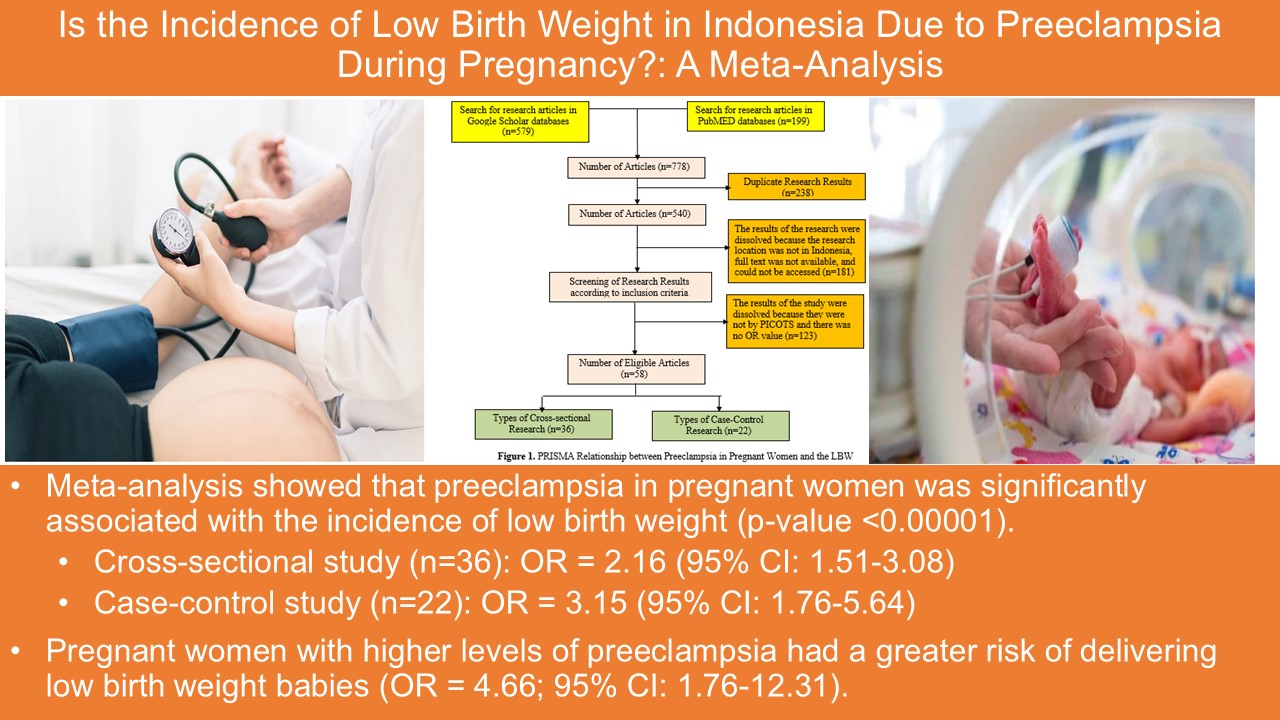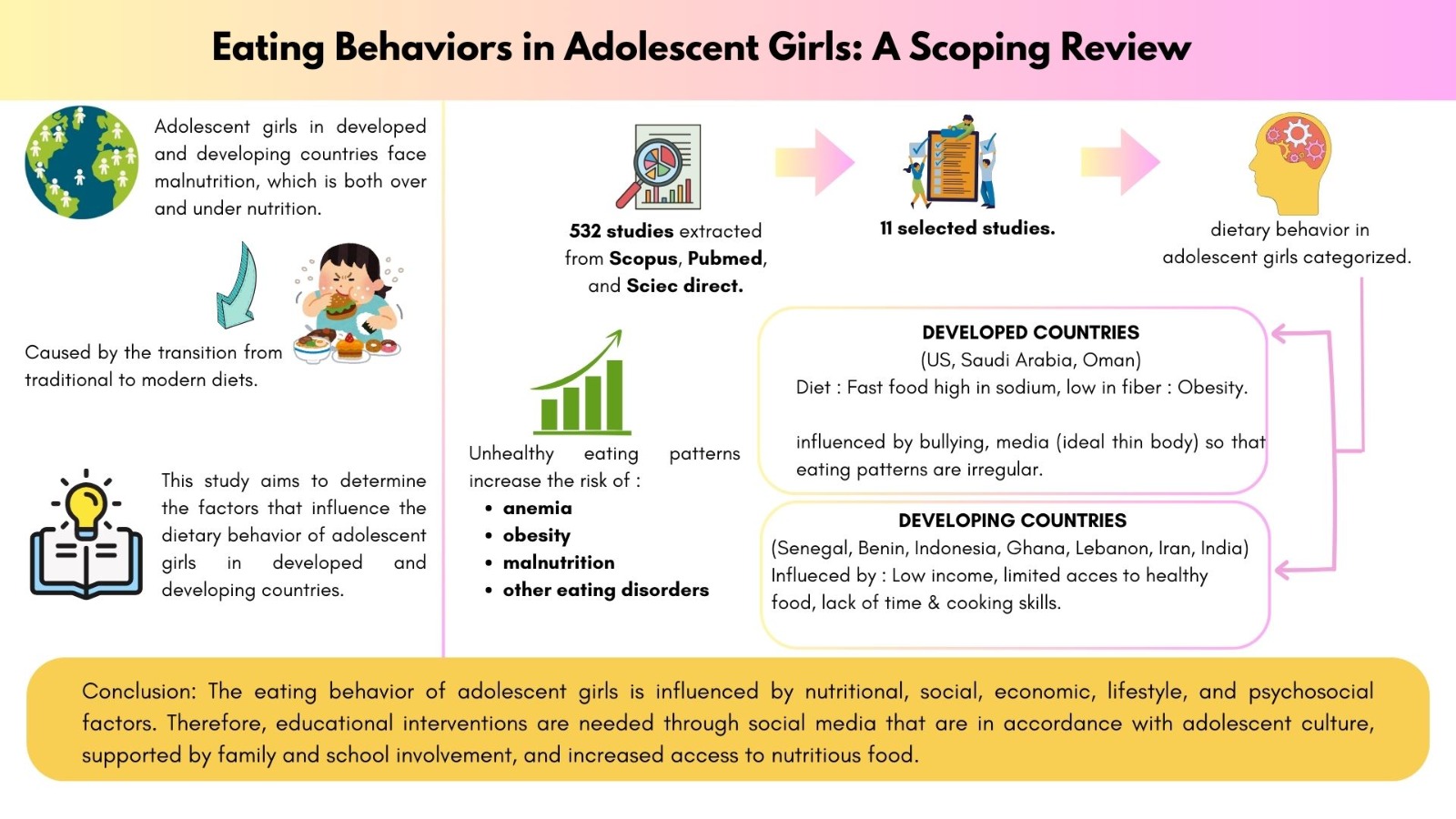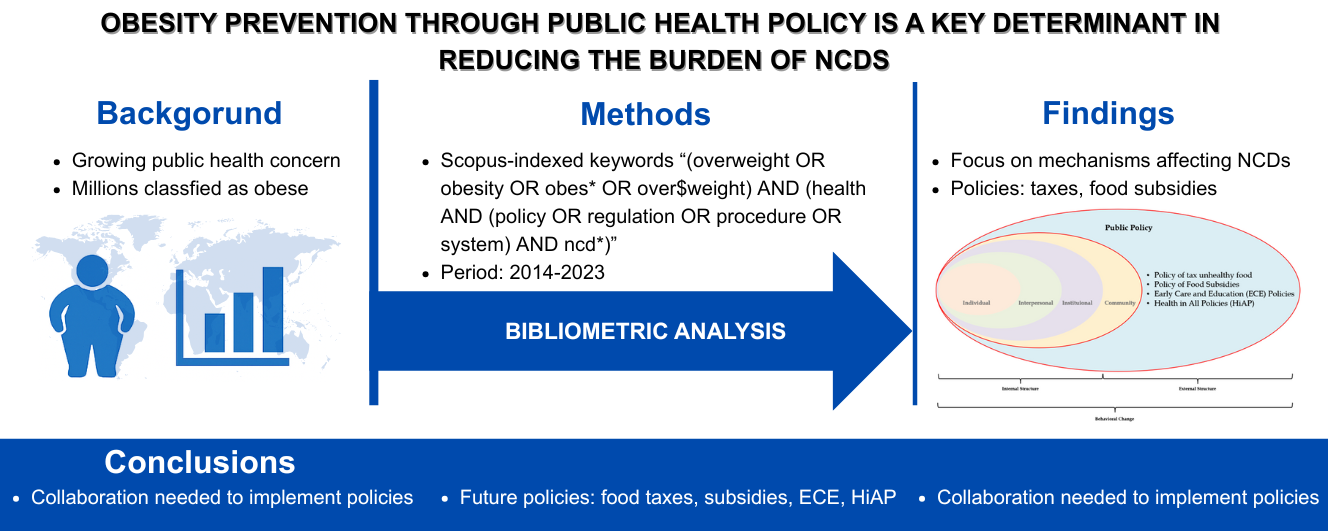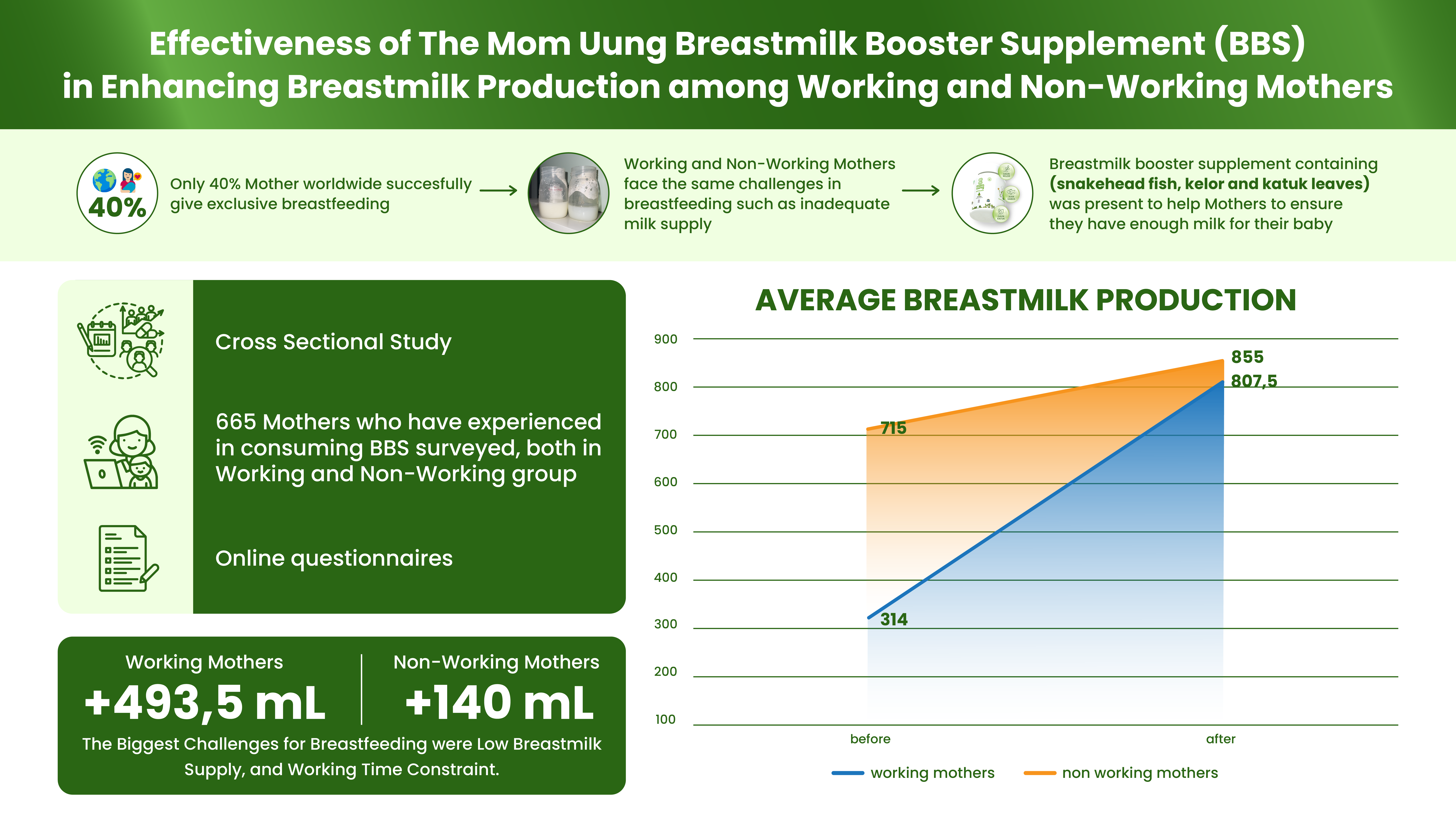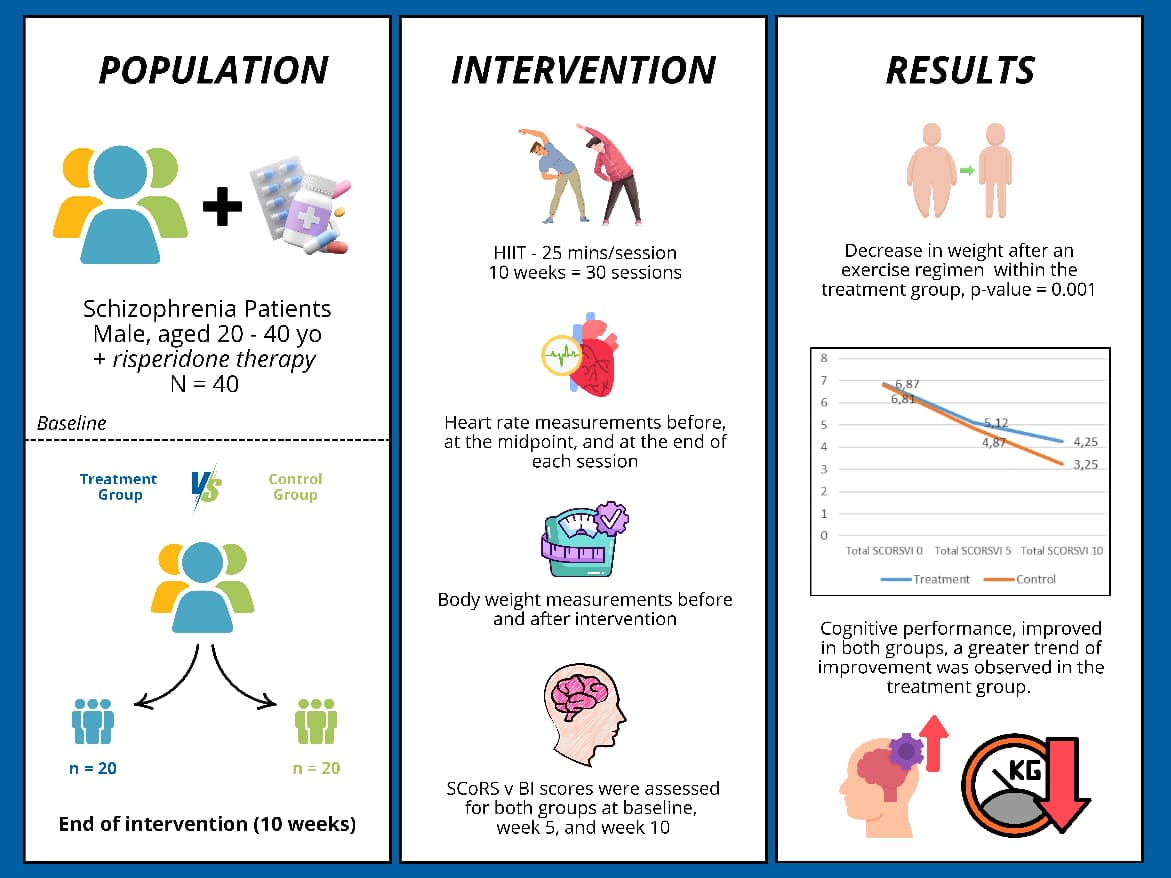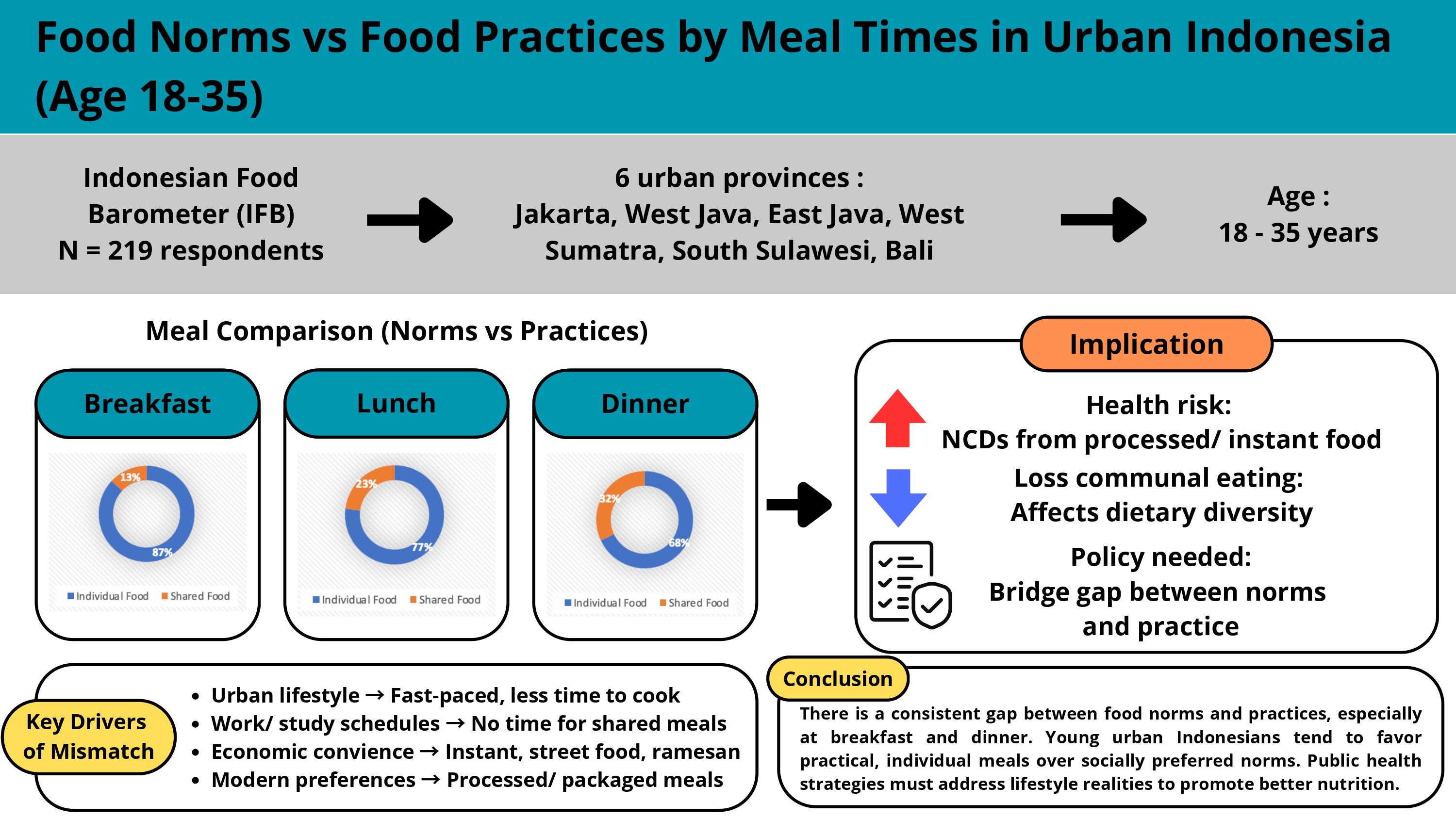The Household Food Security and Stunting of Under-Five Children in Indonesia: A Systematic Review
Downloads
Inadequate access to food at home contributes to growth retardation in childhood. Under-five children who suffer from stunting have problems in their growth and development owing to a lack of nutrients over an extended period of time. This study aimed to analyzed the relationship between household food security and stunting prevalence. This study uses a systematic review using Preferred Reporting Items for Systematic Reviews and Meta-Analysis (PRISMA). Seven electronic databases are used: PubMed, ProQuest, MDPI, Science Direct, Scopus, Google Scholar, and Portal Garuda. This research was based on studies conducted in Indonesia and published between 2013 and 2023. For the final result, sixteen articles were included. Household food security has a positive correlation with the stunting of under-five children in Indonesia. Moreover, households with food insecurity had a greater risk of stunting. A household is said to be food-secure when access to food is fulfilled by all family members. From this systematic review, the government is expected to formulate policies and strategies to improve household food security and the nutritional status of children under the age of five. To accomplish these efforts, coordination between sectors is required to accelerate and strengthen the implementation of these policies and strategies.
Adelia, F.A., Widajanti, L., & Nugraheni, S.A. (2018). Relationship between mother's nutrition knowledge, level of nutrition consumption, family's food security status with under-children stunting (study on toddlers aged 24-59 months in the Work Area of the Duren Community Health Center, Semarang Regency). Jurnal Kesehatan Masyarakat, 6(5), 361-369.
Adhyanti, A., Hafid, F., Sasmita, H., & Yusuf, A.M. (2022). Food security and nutrition of disaster-affected households after 4 years of the earthquake and tsunami in Palu City. Ghidza: Jurnal Gizi Dan Kesehatan, 6(2), 178-190. doi: 10.22487/ghidza.v6i2.561.
Amalia, I.N., & Mahmudiono, T. (2017). Association between household income, total expenditure, proportion of food expenditure and food security of small holder farmers (Study in Nogosari Village, Rambipuji Sub-district, Jember District). Amerta Nutrition, 1(2), 143. doi: 10.20473/amnt.v1i2.6237.
Ariani, M.K., & Suradisastra, E.P. (2013). Food diversification and transformation of agricultural development. IAARD Press.
Arlius, A., Sudargo, T., & Subejo, S. (2017). Relationship between family food security and toddler nutritional status (study in Palasari Village and Community Health Center in Legok District, Tangerang Regency). Jurnal Ketahanan Nasional, 23(3), 359-375.
Aryati, N.B., Hanim, D., & Sulaeman, E.S. (2018). The relationship between food availability of low-income family, protein and zinc intake with growth in children 12-24 months old on Their First 1000 Days. Media Gizi Mikro Indonesia, 9(2), 99-112. doi: 10.22435/mgmi.v9i2.592.
Ashari, C.R., Khomsan, A., & Baliwati, Y.F. (2019). HFIAS (Household Food Insecurity Access Scale) validation to measure household food security. Penelitian Gizi Dan Makanan, 42(1), 11-20. doi: 10.22435/pgm.v42i1.2417.
Asparian, A., Setiana, E., & Wisudariani, E. (2020). Factors associated with the incidence of stunting in toddlers age 24-59 months from Farming Families in the Work Area of the Gunung Labu Public Health Center, Kerinci district. Jurnal Akademika Baiturrahim Jambi, 9(2), 293-305. doi: 10.36565/jab.v9i2.274.
Betebo, B., Ejajo, T., Alemseged, F., & Massa, D. (2017). Household food insecurity and its association with nutritional status of children 6-59 months of age in East Badawacho District, South Ethiopia. Journal of Environmental and Public Health, 2017. doi: 10.1155/2017/6373595.
De Onis, M., Dewey, K.G., Borghi, E., Onyango, A.W., Blössner, M., Daelmans, B., Piwoz, E., & Branca, F. (2013). The world health organization's global target for reducing childhood stunting by 2025: Rationale and proposed actions. Maternal and Child Nutrition, 9(S2), 6-26. doi: 10.1111/mcn.12075.
Delima, C. D. G., & Septriana. (2019). Household level food security, protein intake and stunting incidence in toddlers in Planjan Village, Saptosari District, Gunung Kidul. Medika Respati: Jurnal Ilmiah Kesehatan, 14(1), 78-85.
Ellison, B., Bruening, M., Hruschka, D.J., Nikolaus, C.J., Van Woerden, I., Rabbitt, M. P., & Nickols-Richardson, S.M. (2021). Viewpoint: food insecurity among college students: a case for consistent and comparable measurement. Food Policy, 101(1), 102031. doi: 10.1016/j.foodpol.2021.102031.
Fadzila, D.N., & Tertiyus, E.P. (2019). Household food security of stunted children aged 6-23 months in Wilangan, Nganjuk District. Amerta Nutrition, 152, 18-23. doi: 10.2473/amnt.v3i1.2019.18-23.
Heflin, C., Kukla-Acevedo, S., & Darolia, R. (2019). Adolescent food insecurity and risky behaviors and mental health during the transition to adulthood. Children and Youth Services Review, 105(7). doi: 10.1016/j.childyouth.2019.104416.
Herbawani, C.K., Karima, U.Q., Syah, M.N.H., Hidayati, A.N., & Aprianto, B. (2022). Determinant analysis of stunting incidents in the Work Area of the Cinangka Health Center. Ghidza: Jurnal Gizi Dan Kesehatan, 6(1), 64-79. doi: 10.22487/ghidza.v6i1.518.
Hussein, F.M., Ahmed, A.Y., & Muhammed, O.S. (2018). Household food insecurity access scale and dietary diversity score as a proxy indicator of nutritional status among people living with HIV/AIDS, Bahir Dar, Ethiopia, 2017. PLoS ONE, 13(6), 1-9. doi: 10.1371/journal.pone.0199511.
Islamiah, W. E., Nadhiroh, S. R., Putri, E. B. P., Christiwan, C. A., & Prafena, P. K. (2022). Relationship between food security and stunting in toddlers from fishermen families. Media Gizi Indonesia, 17(1), 83-89. doi: 0.20473/mgi.v17i1SP.83-89.
Kingsley, E., Christine, M., Monica, M., Michael N., Irene M., et al. (2018). Moderate and severe household food insecurity predicts stunting and severe stunting among Rwanda children aged 6-59 months residing in Gicumbi District. Maternal and Child Nutrition, 2019(15), 12767. doi: 10.1111/mcn.12767.
Levinson, F.J., Balarajan, Y., & Marini, A. (2013). Addressing malnutrition multisectorally. What have we learned from recent international experience? Case studies from Peru, Brazil and Bangladesh. UNICEF and MDG Achievement Fund.
Mahmudiono, T., Nindya, T., Andrias, D., Megatsari, H., & Rosenkranz, R. (2018). Household Food Insecurity as a Predictor of Stunted Children and Overweight/Obese Mothers (SCOWT) in Urban Indonesia. Nutrients, 10(5), 535. doi: 10.3390/nu10050535.
Masrin, M., Paratmanitya, Y., & Aprilia, V. (2016). Household food security correlated ith stunting in childrein 6-23 months. Jurnal Gizi Dan Dietetik Indonesia, 2(3), 103–115.
Masthalina, H., Santosa, H., Sudaryat, E., & Zuska, F. (2021). Household food insecurity, level of nutritional adequacy, and nutritional status of toddlers in the Coastal Area of Central Tapanuli Regency. Open Access Macedonian Journal of Medical Sciences, 15(9), 1371-1375. doi: 10.3889/oamjms.2021.7571.
Moher, D., Liberati, A., Tetzlaff, J., & Altman, D. G. (2009). Preferred reporting items for systematic reviews and meta-analyses: The PRISMA statement. BMJ, 339(7716), 332–336. doi: 10.1136/bmj.b2535.
Muslihah, N., Wilujeng, C.S., & Kusuma, T.S. (2022). Household food insecurity, inappropriate complementary feeding, and associated with high stunting and anemia among children aged 6–23 months, in Madura Rural, Indonesia. Current Developments in Nutrition, 6, 933. doi: 10.1093/cdn/nzac067.053.
Mutisya, M., Kandala, N.B., Ngware, M.W., & Kabiru, C.W. (2016). Household Food (in)security and nutritional status of urban poor children aged 6 to 23 months in Kenya. Food Security and Child Malnutrition: The Impact on Health, Growth, and Well-Being, 31(4), 53–71. doi: 10.1201/9781315365749-4.
Ngema, P. Z., Sibanda, M., & Musemwa, L. (2018). Household food security status and its determinants in Maphumulo local municipality, South Africa. Sustainability (Switzerland), 10(9), 1-23. doi: 10.3390/su10093307.
Nshimyiryo, A., Hedt-Gauthier, B., Mutaganzwa, C., Kirk, C.M., Beck, K., et al. (2019). Risk factors for stunting among children under five years: a cross-sectional population-based study in Rwanda using the 2015 Demographic and Health Survey. BMC Public Health, 19(1), 1-10. doi: 10.1186/s12889-019-6504-z.
Permanasari, Y., Saptarini, I., Amalia, N., Aditianti, A., Safitri, A., et al. (2021). Determinant factors of under-five children stunting at locus nd non-locus villages in 13 stunting locus districts in Indonesia in 2019. Penelitian Gizi dan Makanan, 44(2), 79-92. doi: 10.22435/pgm.v44i2.5665.
Raharja, U.M.P., Waryana, S. A., & Sitasari, A. (2019). The economic status of parents and family food security as a risk factor for stunting in children under five years old in Bejiharjo Village. Ilmu Gizi Indonesia, 3(1), 73–82.
Riski, H., Mundiastutik, L., & Adi, A.C. (2019). Household Food security, sickness and environmental sanitation associated with nutritional status of toddlers aged 1-5 years in Surabaya. Amerta Nutrition, 3(3), 130-134. doi: 10.2473/amnt.v3i3.2019.130-134.
Sadiq, A., Telisa, I., Sari, D.K., Friantini, T., & Hasyim, H. (2023). Determinant factors of stunting incidence in Muara Enim Regency, South Sumatra Province. International Journal of Public Health Science, 12(3), 1093-1101. doi: 10.11591/ijphs.v12i3.22906.
Safitri, C.A., & Nindya, T. S. (2017). Relationship food security and diarrheal disease to stunting in under-five children age 13-48 months at Manyar Sabrangan, Surabaya. Amerta Nutrition, 1(2), 52-61. doi: 10.2473/amnt.v1i2.2017.52-61.
Schmeer, K.K., & Piperata, B.A. (2017). Household food insecurity and child health. Maternal and Child Nutrition, 13(2), 1-13. doi: 0.1111/mcn.12301.
Statistics Indonesia. (2023). Profil kemiskinan di Indonesia maret 2023. Accessed from https://www.bps.go.id/pressrelease/2023/07/17/2016/profil-kemiskinan-di-indonesia-maret-2023.html.
Sudargo, T., & Armawi, A. (2019). Demographics of family food security in relation to stunting incidents in children aged 1–5 years (study in the Work Area of the Bandarharjo Health Center, Tanjung Mas Village, North Semarang District, Semarang Municipality, Central Java Province. Jurnal Ketahanan Nasional, 25(2), 178-203.
Sumarmi, S., Mahmudiono, T., & Melaniani, S. (2018). Household food insecurity and undernutrition in children below 5 years living in different geographical areas in East Java, Indonesia. Malaysian Journal of Nutrition, 24(4), 529–538.
Utami, N.H., & KP, D.S. (2015). Household food security is associated with nutritional status of children under two years old in Kebon Kalapa, Central Bogor Subdistrict, West Java. Gizi Indonesia, 38(2), 105–114.
World Bank. (2022). Garis waktu: kemitraan Indonesia dan Bank Dunia. Accessed from https://www.worldbank.org/in/country/indonesia/overview.
Yang, Q., Yuan, T., Yang, L., Zou, J., Ji, M., et al. (2019). Household food insecurity, dietary diversity, stunting, and anaemia among left-behind children in poor rural areas of China. International Journal of Environmental Research and Public Health, 16(23), 1-13. doi: 10.3390/ijerph16234778.
Yanti, D. S., Sumardiyono, S., & Kusnandar, K. (2023). The relationship between household good security and incidence of stunting in toddlers during the new normal: A systematic review. Epidemiology and Society Health Review, 5(1), 51–59. doi: 10.26555/eshr.v5i1.7279.

This work is licensed under a Creative Commons Attribution-NonCommercial-ShareAlike 4.0 International License.
- MEDIA GIZI INDONESIA Journal is the copyright owner of all materials published on this website.
- The formal legal provisions for access to digital articles of this electronic journal are subject to the terms of the Creative Commons Attribution-NonCommercial-ShareAlike license (CC BY-NC-SA 4.0), which means that MEDIA GIZI INDONESIA Journal and readers reserve the right to save, transmit media / format, manage in database, maintain, and publish articles as long as it continues to include the name of the Author.
- Printed and published print and electronic manuscripts are open access for educational, research and library purposes. In addition to these objectives, the editorial board shall not be liable for violations of copyright law.


2.png)















